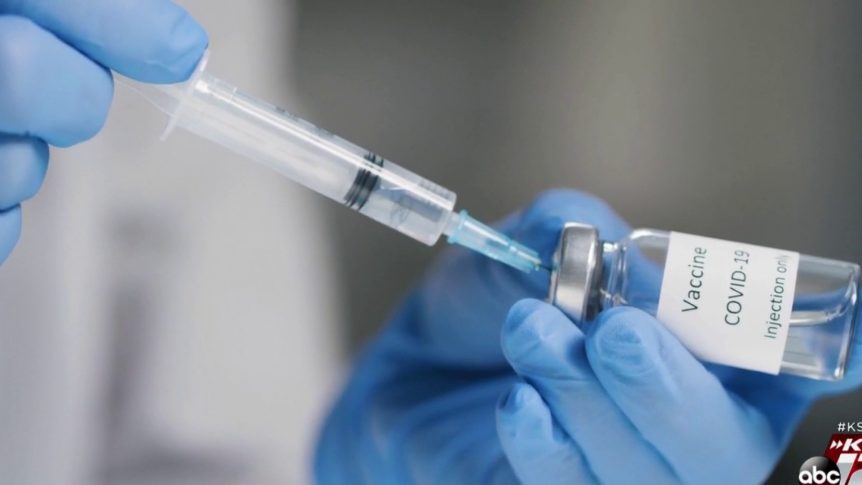The COVID-19 vaccination programme in Borno is currently experiencing a significant setback due to a lack of timely payment of allowances to health workers/vaccinators, according to the findings.
Borno state is one of the states in the country with the lowest number of people who have received the COVID-19 vaccine.
Only about 6-7 percent of the state’s eligible population has received the vaccine so far.
Some of the vaccinators interviewed by our state correspondent expressed dissatisfaction with the lack of prompt payment of their allowances, particularly those paid by the federal government.
The findings revealed that there are two types of COVID-19 vaccinees in the state. Those paid by development partners fall into one category, while those paid by the federal government fall into the other.
Further investigation revealed that those who are paid by the federal government do not receive their allowances on time. They don’t get their allowance for three to four months.
A visit to some vaccination centres in the Jere local government area and the Maiduguri Metropolitan Council (MMC) of Borno state revealed that most vaccinators do not go to vaccination sites every day due to a lack of transportation funds.
Read Also: Breaking: Methodist Church Prelate, Uche, 2 others abducted in Abia
“We are having problems with our vaccinators because they don’t come everyday for the vaccination exercise,” a senior health official in the state said, requesting anonymity because she didn’t have the authority to speak on the matter. But you can’t blame them because how can someone work for three months or longer without being paid? The majority of them are job applicants or even university students who are currently on strike and are doing this sporadic work in order to get paid. How do you expect them to get to the clinic to get vaccines and then to the vaccination sites if you don’t pay them on a regular basis?
“Those who are paid by partners have no issues because they receive their allowances on time.” Those who are paid by the government, on the other hand, are finding it difficult to return to work every day. This is causing a significant setback in the state’s COVID-19 vaccination programme.
She therefore urged the federal government to consider paying the allowances as soon as possible so that the vaccinators can focus on improving vaccine uptake in the state.
“I only got my allowance once this year,” one of the vaccinators said when responding to questions from our Correspondent at one of the Clinics in Maiduguri Metropolitan Council. This has a significant impact on us because we don’t always have access to transportation to get to work.
“Yes, this has an impact on vaccination coverage because how can someone work for months without being paid and expect them to come every day?” The government should help us out by paying our allowances on a regular basis.”
However, in response to the alleged delay in the payment of allowances for COVID-19 vaccinators, Dr. Clement Adams, the Health Manager at UNICEF’s Borno office, urged vaccinators across the state to be patient because the delay is due to bureaucratic bottlenecks.
“I am not acting on behalf of the government or anyone else.” However, the truth is that money isn’t always enough to solve our problems.
“Yes, there are difficulties with money availability. It’s not just about availability; it’s also about the timing of the release.
“The money may be available, but the procedure and bureaucratic nature of releasing it will cause delays.” People may misinterpret these delays as a result of administrative bureaucracies that must be cleared before money can be released to pay people.
“As a result, bureaucracies can sometimes delay the release of funds. It all comes down to how people have interpreted bureaucracies. However, paying on time is critical.”
The UNICEF Health Manager, while urging all relevant bodies and government officials involved in the payment of vaccinators to ensure timely release and prompt payment, also urged Nigerians to see the work as part of the sacrifice they are making for humanity.
“We want to reassure everyone involved in all of this that the timely release of funds is critical.” If that isn’t done, the timeliness of the explanation is also crucial.
Read Also: NCDC reports 66 suspected cases of monkeypox, with one death
So, we may believe that the money is available but that the government is holding it, but it may not be.
“Sacrifices are necessary at times.” Let us all agree that this is a matter of humanity and that we want to save lives. Allow us to be patient when we try to push too hard.
“I’m not saying people shouldn’t be paid, but I’m also saying that patience is essential when it comes to following these things.” It’s about saving lives. Everything is secondary to life. We must be patient because some administrative processes and procedures are inefficient.
“As a result, we must be patient. Consider the enormity of the task at hand: it’s impossible to say that money is simply being laid down. Some of these funds are in transit, causing bank transfer issues, and others are causing bureaucratic issues.
“However, we want to encourage people to improve on these flaws so that we can collaborate and see how we can help.”
![]()


